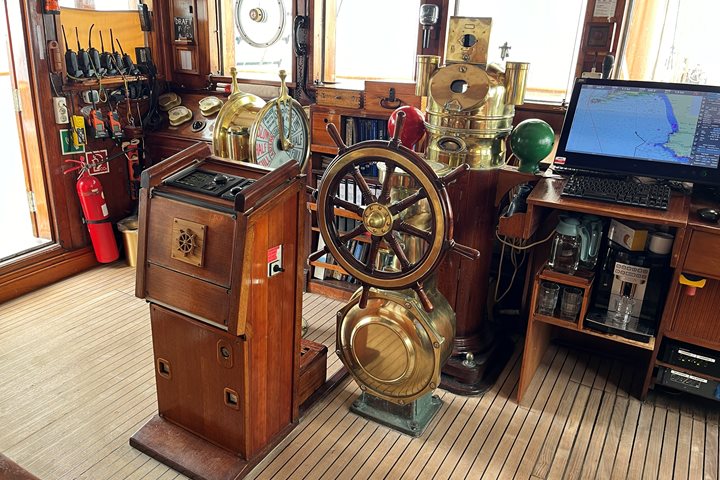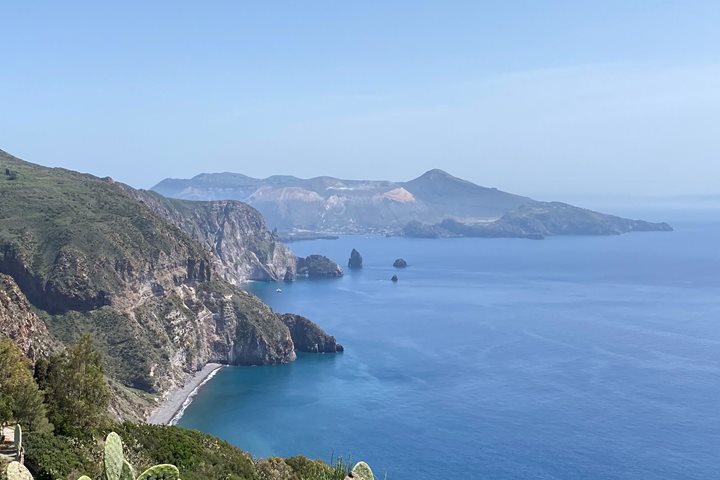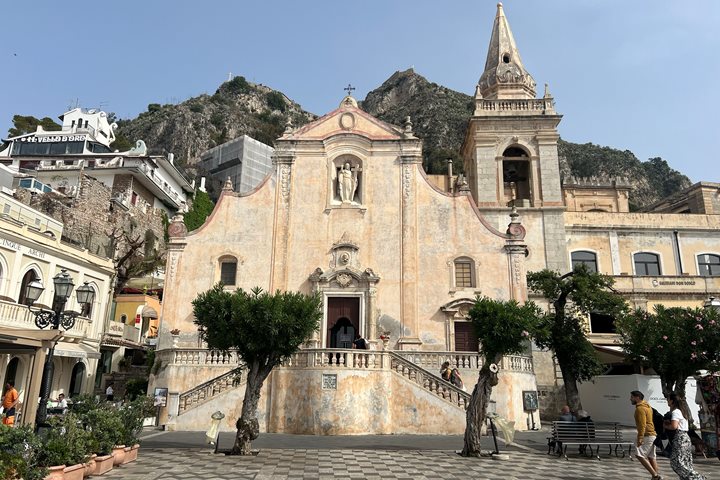In the early morning hours, Sea Cloud is on approach to the ancient capital of Sicily, Syracuse. Located in the island’s southeast – the Val di Noti – Syracuse has a natural harbor open to the west. We are happy to come to port, as it shelters us from the decent-sized swell we experienced throughout the night during the transit from Malta.
First colonized by Corinth in the 8th century BC, Syracuse would become one of the greatest city-states within the Greek world and was second only to Athens in wealth and its reputation in the arts. Like Athens, in the 5th century BC, Syracuse led a Greek coalition in a decisive victory against its rivals and profited immensely. However, unlike Athens, the birthplace of democracy, Syracuse was typically ruled by tyrants. Both cities commemorated their victories with a monumental building program to honor the gods, and both experienced a “golden age” – a vibrant era of creativity in the arts and literature. At Syracuse, great temples to Athena and Apollo were erected. Soon after, they also built a theatre, notably the first one ever outside of Athens. For many years, Syracuse remained the dominant city in Sicily, and it always had a largely Greek-speaking population. Only with the advent of the Arab period in the 9th century was the Sicilian capital relocated to Palermo.
In the morning, we take a guided tour of the ancient archaeological site. The great limestone quarries, home to the “Ear of Dionysius,” are now home to scenic gardens. After climbing to the top of the Greek theatre, we head across the site to view the Roman amphitheatre. After a fine buffet lunch aboard the ship, we reconvene for an afternoon walking tour of Ortigia, the original location of the tyrant’s palace. This takes us through the delightful medieval town, much of which is pedestrian-only, to take in the splendid Renaissance-period architecture and ambience of this small island. We marvel at the Duomo di Syracuse, originally the Temple to Athena, as a place of worship that has endured over 2500 years of tumultuous Sicilian history.







